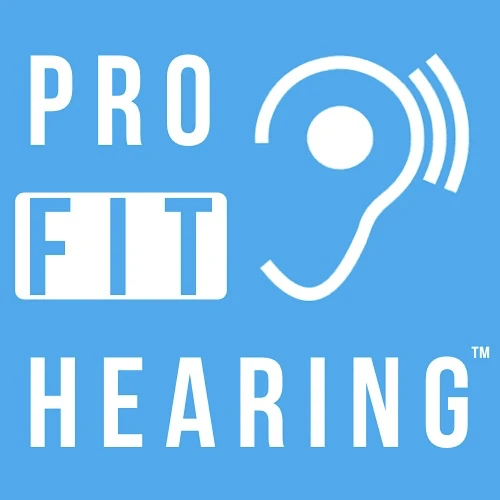Hearing Aids? NOPE. – Top 10 Reasons Why

Hearing Aids? NOPE. – Top 10 Reasons Why
Have you considered digital hearing aids but something’s holding you back? Well in this post, I’m talking about the top 10 excuses to not buy hearing aids. Coming up!
SUBSCRIBE to our YouTube channel for weekly videos!
Hi, I’m Dr. Derek – audiologist, audio engineer, and musician with ProFitHearing.com bringing you the best insight in today’s latest hearing aids, headphones, and audio technology to improve your life. If you have concerns about your hearing, always consult with your local physician or audiologist.
If you’re interested in hearing aids, check out my free eBook HERE.
Hearing Aids? Why Not?
Do you struggle to connect with family and friends? Do you hear that someone’s speaking to you, but you don’t understand them? Is it really difficult in noisy situations? Well if this sounds like you, first get a hearing test to determine if you have hearing loss. According to the National Institute on Deafness and other Communication Disorders, an estimated 28.8 million US adults could benefit from hearing aids. Your audiologist can determine if you’re a hearing aid candidate and show you the hearing aids that they offer.
Today, I’ll cover the top excuses people use to not buy hearing aids. I’ve heard each one of these excuses in the clinic, but hopefully today I’ll convince you to consider hearing aids so that you can hear all that you’ve been missing.
Excuse #1. Hearing aids make you look old.
Hearing aids today are very small compared to what was available years ago. Some are hidden deep inside the ear canal, behind the ear, or underneath hair. Today’s digital hearing aids are miniaturized computers that can connect to smartphones and stream audio with Bluetooth. Using hearing aids doesn’t make you look old, but avoiding them might since you’re probably asking people to repeat themselves and straining to hear.
Excuse #2. You can’t hear on the phone with a hearing aid.
If you’re using hearing aids correctly, voices on the phone should sound more clear and be easier to understand. It depends on the position of the phone against the hearing aid. For a behind-the-ear hearing aid, hold the phone up about an inch higher next to the hearing aid microphone on top. For an in-the-ear hearing aid, hold the phone against your ear just like normal.
Many of today’s hearing aids can automatically stream phone calls and allows the phone to be heard directly in both ears. This provides improved word clarity and speech understanding during your phone conversation. Also if you have feedback or whistling from the hearing aid when you use a phone, ask your provider for an adjustment. They can review the feedback manager settings inside the hearing aid and also activate a phone program. This should help eliminate feedback.
Excuse #3. People will treat me differently.
With today’s discrete hearing aids, it’s likely that people won’t notice you’re wearing them. Also, people will likely treat you differently if you’re not wearing hearing aids since they’ll probably need to speak louder or repeat themselves for you to understand. A patient’s family is often amazed at how much better their loved one hears and understands speech with hearing aids. Those around you often see and appreciate the positive change that hearing aids make in your life.
Excuse #4. People just mumble too much.
Patients often say they hear just fine but it’s just that people mumble too much. However, this lack of speech clarity is a possible sign of high frequency hearing loss. Age-related hearing loss is also known as presbycusis, and it first occurs in the high-pitched frequency range. This impacts consonants and speech intelligibility. You should always try to face the person you’re speaking with and reduce background noise to maximize word understanding. Conversations often break down if you’re talking while you’re walking away from someone, or you’re trying to talk to someone from the other room.
Excuse #5. Hearing aids are too expensive.
Yes, hearing aids can be expensive but there’s other affordable options to consider. Hearing aids often are available in at least three different versions: entry-level, mid-level, and advanced. The good news is technology has advanced to the point where even an entry-level hearing aid can be more than adequate for your needs, so don’t feel pressured to spend more than you can afford. Some clinics offer payment plans or accept third-party financing as well. Always remember to ask about the hearing aid trial period, get a breakdown of all fees, and review the warranty. Wear your hearing aids consistently, give yourself some time to adjust to them, and ask your provider for an adjustment or refund if you’re not happy with your purchase.
Excuse #6. I get by, I live alone anyway.
Even if you have limited social interaction, it’s still recommended to treat hearing loss. Untreated hearing loss leads to auditory deprivation since the brain is no longer receiving a full sound signal. Its ability to process sound can be affected over time, so try hearing aids to hear your best. Communicate better on the phone, enjoy watching TV, and connect with your family and friends.
Excuse #7. Hearing aids don’t work.
Some patients might think that a hearing is going to sound perfect in most situations, or that it’s going to fix their hearing. Well hearing aids can improve our ability to understand speech, but they cannot cure hearing loss. You’re going to hear better, but you’re still going to have some difficulty understanding speech in a noisy situation. Everyone new to hearing aids will experience an adaptation period where the brain starts to make sense of all the new sounds you’re receiving. Sounds around you are going to sound different, and they’re going to take some getting used to. But, you’re definitely going to see an improvement in sound quality over time. So, you need to wear your hearing aids consistently for the best outcome. Also, hearing aid maintenance is very important. Make sure to check the battery, check the tubing/ear mold/or tip of the hearing aid for any blockage, and keep the microphones clear of debris. Ask your audiologist to troubleshoot the hearing aid if you’re still having difficulty.
Excuse #8. Hearing aids are too complicated.
Hearing aids default to an automatic setting that adjusts the volume and reduces background noise. This helps you hear the soft sounds while keeping the loud sounds comfortable and reducing noise. Hearing aids can automatically adjust to help you hear better on the phone. Rechargeable hearing aids are even easier, because there’s no battery that you need to change. You just place the hearing aids in the case at night, and they’re ready to go in the morning.
Excuse #9. Hearing aids whistle or feedback all the time.
Maybe you know someone who had hearing aids that whistled all the time, and they didn’t even realize it. Well, today’s technology has greatly reduced hearing aid whistling which is also known as feedback. An appropriately adjusted hearing aid definitely should not whistle all the time, but it can still occur when you’re inserting or removing a hearing aid or if you’re holding your hand up close to the ear. Hearing aids today have automatic feedback control built in so any whistling can be detected and automatically removed. If you have whistling hearing aids, ask your audiologist to check for any blockage like earwax and also to troubleshoot the hearing aid.
Excuse #10. I can just turn up the TV volume louder.
This may work great for you, but it’s likely the TV is too loud for everyone else. The TV sound is probably still not as clear as you’d like it to be. A hearing aid boosts up the part of sound that you can’t hear as well, and that way you can understand the TV better and reduce the overall volume. You also have the option to stream sound directly from a TV to most hearing aids.
Hearing Aids? Consider them!
I hope you can now appreciate how hearing aids can improve your life and will consider trying them for yourself. If you think you have hearing loss, don’t delay. Contact your local audiologist for a hearing evaluation. Make the most of your hearing with today’s latest hearing aid technology.
-Dr. Derek
